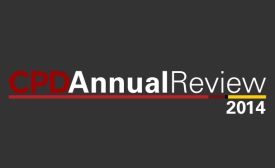smart power
The 2014 CPD Annual Review demonstrates that although public diplomacy is present in every region of the world, it is predominantly in the northern hemisphere. North America is ranked the most active region in public diplomacy, with the United States contributing the most. Asia (Asia Pacific, Southeast Asia and Central Asia combined) comes in second, and Europe is third, with almost the same presence as Asia. As expected, China, Japan, and South Korea take the lead as the major actors in Asia Pacific. India is also very active in PD in South Asia.
As part of the CPD Annual Review process, in January we highlighted some of the year’s key public diplomacy moments in our Top 10 List of the most notable stories from 2014.

Matthew Wallin, a USC MPD alum and fellow at the American Security Project, reveals why public diplomacy matters for soldiers and governments alike in this new report on U.S. Military PD practices.
Launched in 2013, the CPD Annual Review was developed to serve as a guide to understanding the global landscape of public diplomacy, its ebbs and flows, its triumphs and its shortcomings.

Capturing the scope and scale of PD around the world through an analysis of English-language news stories from 2014.
The Chinese historically have had a steady grasp on the usage of soft power. In an interview with the HPR, Professor Joseph Nye, the foremost scholar on smart power, stated that China’s “basic aim is to combine hard and soft power.
An interview with the man whose coinage 'smart power' is much in use in diplomatic-strategic circles. Joseph S. Nye Jr. is a leading US political scientist. He is also a former dean of Harvard’s John F. Kennedy School of Government and worked in various capacities with several American presidents. Nye is a prolific writer and has written over 13 books and over 150 critically acclaimed articles in professional and policy journals.
Speaking to Daily Sabah, Joseph Nye said that contrary to many opinions, the power held by the U.S. is not declining. Instead, other actors in the world are becoming more visible as they join the power struggle.







